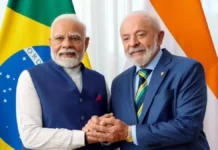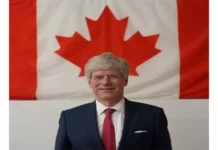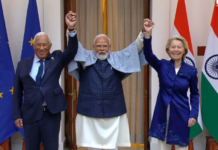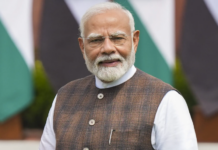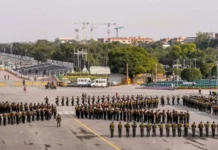 NEW DELHI: Nuclear weapons have deterred world powers from issuing “explicit or implicit threats” to blackmail India to toe a particular line, National Security Advisor Shivshankar Menon said here today.
NEW DELHI: Nuclear weapons have deterred world powers from issuing “explicit or implicit threats” to blackmail India to toe a particular line, National Security Advisor Shivshankar Menon said here today.
“On at least three occasions before 1998 other powers used the explicit or implicit threat of nuclear weapons to try and change India’s behavior,” Menon said without elaborating.
Addressing the National Outreach Conference on Global Nuclear Disarmament, he said the global powers did not succeed in changing India’s behavior because of the “hard-headed leadership we were fortunate to have.”
“Since we became a declared nuclear weapons state in 1998 we have not faced such threats,” Menon told an audience comprising college students and a handful of diplomats.
He said nuclear weapons contributing to the country’s security in an uncertain and anarchic world.
“There is no question that these weapons have done so, to the extent that they were expected to when we decided to become a nuclear weapon state,” Menon said.
Observing that nuclear weapons make a contribution to the country’s security in an uncertain and anarchic world, he said, “The possession of nuclear weapons has, empirically speaking, deterred others from attempting nuclear coercion or blackmail against India.”
The NSA underlined that from the very beginning India has made it clear that its nuclear weapons were for deterrence and not “war-fighting weapons”.
In an apparent reference to Pakistan, he said unlike certain other nuclear weapon states, India’s weapons were not meant to redress a military imbalance, or to some perceived inferiority in conventional military terms, or to serve some tactical or operational military need on the battlefield.
Menon said that having nuclear weapons also added weight to India’s argument for universal disarmament on the global fora.
“We spent 24 years after our first peaceful nuclear explosion in 1974 urging and working for universal nuclear disarmament and a nuclear free world,” he said.
He said India argued for a nuclear weapons free world out of conviction that such a scenario would enhance national security and that of the rest of the world.
“But sadly this was a conviction and view that obtained much lip sympathy and verbal support but was actually flouted in practice with increasing impunity by others,” Menon said.
“And when the division of the world into nuclear weapon haves and have-nots was sought to be made permanent in the nineties it became clear that possession of nuclear weapons was necessary if our attempts to promote a nuclear weapon free world were to be taken seriously and have some effect,” he said.
Menon said today many countries and people were willing to support and work for a nuclear weapon free world than ever before.
He pointed out that US President Barack Obama, during his visit to India in November 2010, spoke of a shared commitment to a world without nuclear weapons.
“So, the apparent paradox of India as a nuclear weapon state advocating a nuclear weapon free world is simply explained. We do think that we would be more secure in a world that is truly free of nuclear weapons,” he said.
“But until we arrive at that happy state, we have no choice, and a responsibility towards our own people, to have nuclear weapons to protect them from nuclear threats,” Menon said. Menon said the Rajiv Gandhi Action Plan (RGAP) for a nuclear weapon free and a non-violent world order was the only feasible and practical plan that would reconcile the demands of morality, security and survival in the nuclear age.
He said the RGAP remained the only practical plan for universal non-discriminatory nuclear disarmament.
“Rajiv Gandhi was also the one who made it possible for India to convert her undoubted technical capability in atomic energy into a nuclear weapon program,” he said.
Menon said India was the only nuclear weapon state with a practical plan, involving timeframes and legally binding obligations, to achieve a nuclear weapon free world.
The National Outreach Conference on Global Nuclear Disarmament has been organized by the Indian Council of World Affairs in collaboration with Mani Shankar Aiyar, who heads the Prime Minister’s informal group on the RGAP. -PTI


